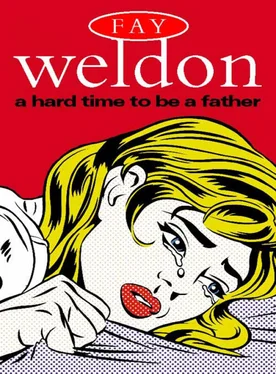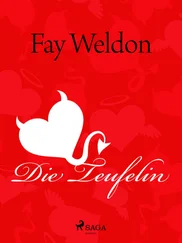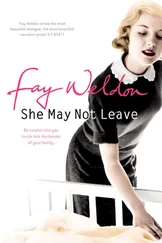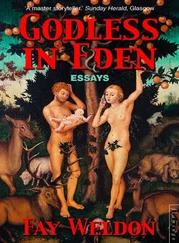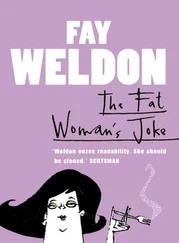She knew her way through the backstreets of Oslo; the ship had docked at 6 a.m.: early: they’d picked up the hire car at the port, a BMW, executive style, glossy black, bullet-proof windows. Lothar didn’t drive – he did not, he often said, wish to be an accomplice in the pollution of the planet; besides, he enjoyed his passenger status. He thought her hands gripped rather tightly on the wheel as they approached Grunnerloekka.
‘I hate this place,’ she said.
Early sun shone on snow-sprinkled trees. Lothar looked round for any possible source of her hate, but could find none. It was a district much like the one he himself lived in, only in Oslo, not Berlin. A run-down, attractive village-within-the-city, where artists and academics clustered, and now the immigrants moved in because rents were cheap. Already people were about. A bouncy blonde mother wheeled out twins in a high, well-sprung pram: a group of shrouded Islamic women hurried by; a pale young man with ringlets played folk-songs on a flute. A Turkish foodstore stood next to a shop selling Japanese paper lampshades and beeswax candles: there was an espresso bar next to a clinic offering Chinese medicine and acupuncture. A gang of children raced along the shop fronts, banging hands against shutters and doors as they went – clang, clang, reverberating – but otherwise they kept silent, as if like a flock of birds they could read each other’s minds. Vietnamese, he thought: lithe, graceful and dangerous; those, you could be sure, whom earlier generations had wronged, now thriving on the guilt of the descendants.
‘It seems much like anywhere else,’ said Lothar cautiously.
‘It’s going down in the world,’ she said. ‘Black faces everywhere.’
He felt shocked. He’d been on the verge of falling in love with her. He moved his hand away from her knee. She felt it go and smiled.
‘I am concerned for property prices, that’s all,’ she said.
‘Rentals and so forth.’
They came to a park. An untidy slope of snow, thawing, green and brown tussock showing through the white, ran down to a partly frozen stream, tree-lined. Ducks swam in patches where the ice had melted, milling around, uncomfortably close to one another. Stella parked the BMW on the gravel verge. On the other side of the road, overlooking the park, stood turn-of-the-century apartment blocks, balconied, shabby but attractive in their deep Hanseatic colours. They had been built in an age where there was more space, fewer people; the buildings stood at a leisurely distance from one another, their proportions pleasant.
‘How attractive,’ said Lothar, who would always rather praise than blame. Good humour, he felt, made the world go round.
‘I lived here for eleven years,’ said Stella. ‘Up there on the fourth floor. The balcony with all the house plants.
I was married to a musician.’
‘What happened?’
‘He betrayed me,’ she said, and seemed disinclined to say more.
‘Did you love him?’ he pressed.
‘Oh, yes,’ she said bleakly.
She made no move to get out of the car. They sat there in silence. A duck made an aborted landing on the ice down below, and took off again directly. That made her laugh.
‘I moved out so she could move in,’ said Stella. ‘It was the sensible thing to do. So sensible, the Norwegians. She was Miss Oslo, a long time back. She had a degree in anthropology, and could play the bassoon besides.’
‘Miss Oslo?’ he was confused.
‘I’m talking the old world, not the new,’ she said. ‘I’m talking Beauty Queens. Hers was the female face and form Norway chose to present to the world. My husband served the same function, but as a musician. He would take his orchestra abroad: how everyone applauded: cut out clippings back home. They were made for each other. Though I think now there are financial problems. They are getting older: the young tread hard upon their heels. Incomes fall. You know how it is.’
A man came out of the wooden doors of the apartment block. He was in his early sixties, perhaps: thin, a little bent, gentle, elegant, a man of some dignity and authority. He carried a violin case. He did not notice the BMW or its occupants, though they should have been noticeable enough.
‘There he goes,’ said Stella. ‘There goes George. His mind on other things, as usual. Music, most likely. Miss Oslo had to all but lie on her back and wave her legs in front of him, before he so much as noticed. But such long legs, in the end he couldn’t help it. I don’t blame him, I blame her.’
‘Don’t you want to speak to him? Shouldn’t you go after him?’
‘More fun to speak to Miss Oslo, 1970,’ said Stella.
A blond boy of about twelve came out of the apartment door, and ran after George. He too had a violin case; it banged against his legs when he ran. He took George’s hand.
‘That will be Tora,’ said Stella. ‘They had a boy, later, a half-brother for Karianne.’
‘Karianne?’
‘My daughter,’ said Stella. ‘She chose to stay with her father. This is Norway: children have rights too, you know. She’s seventeen now. It seemed best to keep out of her life one way and another.’
A dark-eyed boy came out of the apartment block and stared at the car. He was Turkish, or perhaps Kurdish, with smooth plump, dusky cheeks; beautiful, rather girlish. Lothar thought he would be perfect as a model for the child in his next book. When the boy had enough of staring, he went in again.
‘He’ll have gone to fetch his friends,’ said Stella.
‘Don’t leave me alone here,’ said Lothar, suddenly nervous and a long way from things familiar. The sun had gone in: such snow which still rested on branches stopped glittering, and the white had a kind of deadness.
‘Don’t be so nervous,’ she said.
She reached across him and opened the glove box. She felt beneath papers and brought out a hand weapon, squat, dull and black, showed it briefly to Lothar, smiled, and tucked the gun back under the papers again.
‘A gun?’ he asked, incredulous. ‘A real one?’
‘Yes, and it’s loaded,’ she said. ‘So don’t be stupid with it. But guns make anyone feel safe. Just knowing they’re there.’
He remembered she’d made some kind of deal with a couple of young men in a bar the night before they left Copenhagen. A box had changed hands. She’d insisted on going to that particular bar, though there were better, smarter ones nearby, and the night was chilly. Click, click, her heels had gone down the cobbled harbour alleys.
‘Copenhagen’s cheap for weapons,’ she said. ‘I got it for a couple of hundred dollars. I’d have had to pay nearer eight back home.’
‘But why?’ he asked. ‘What can you possibly want a gun for?’
‘I’ll sell it to help pay for the trip,’ she said. ‘Since there’s a personal element in us coming here, I don’t like to charge it to my business. I hate being out of pocket.’
‘How do you get a weapon through customs?’
She looked at him sideways: eyes still bright and long-lashed; delinquent.
‘I have a friend in every port,’ she said. ‘It’s how I make my living.’
He supposed it to be a good living: her bracelet was solid gold; the buckle on her belt likewise. Her cases were soft leather. She’d paid cash for the car hire: she kept a wad of notes in her bag, rolled and in a rubber band. Too many for a wallet.
He could see he was of no practical use to her: she must sincerely want his company, or at least his body. He was flattered. This powerful, dangerous, effective person, with so much history, her body melting into his at night.
Now a young woman came out of the apartment block: pretty, and healthy, long-legged, black tights, short yellow skirt, leather jacket. A willowy black youth came out after her: shaven headed, well featured. They walked off hand in hand, black and white.
Читать дальше
